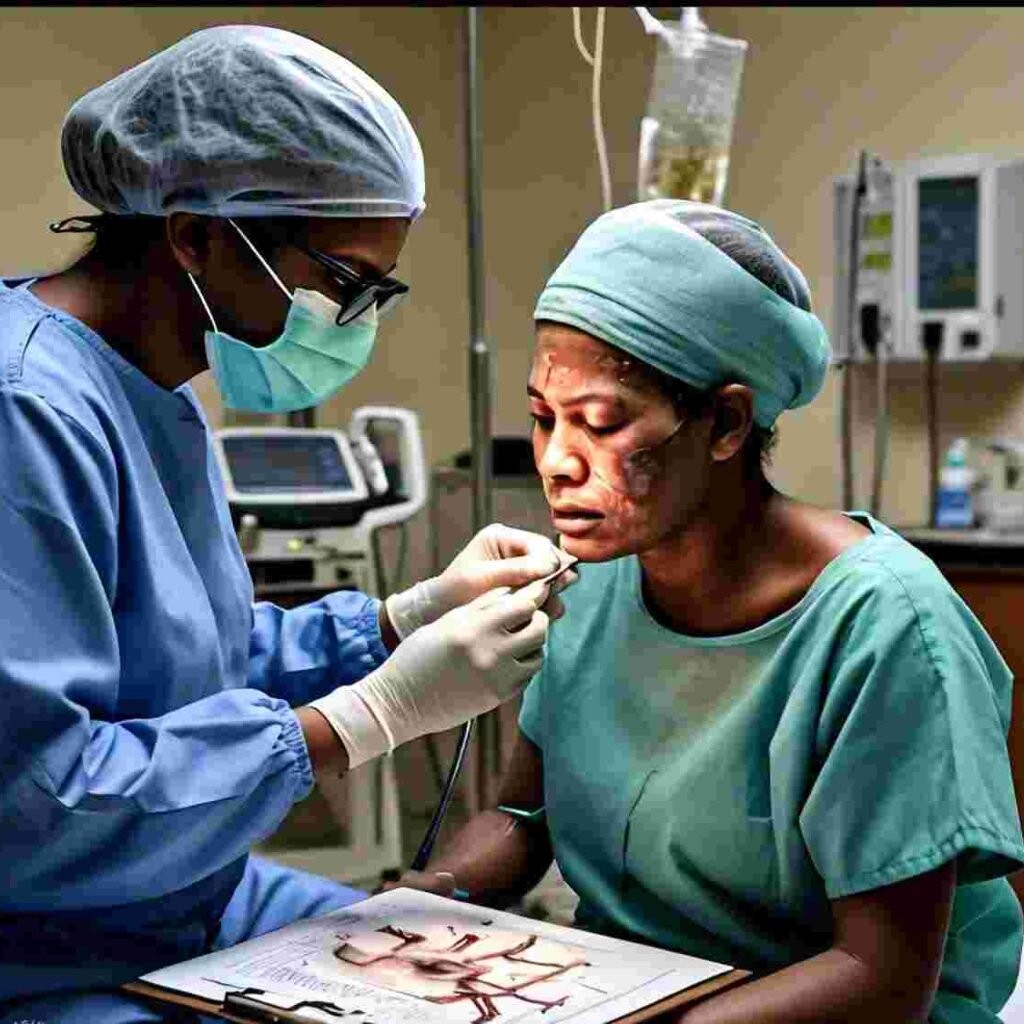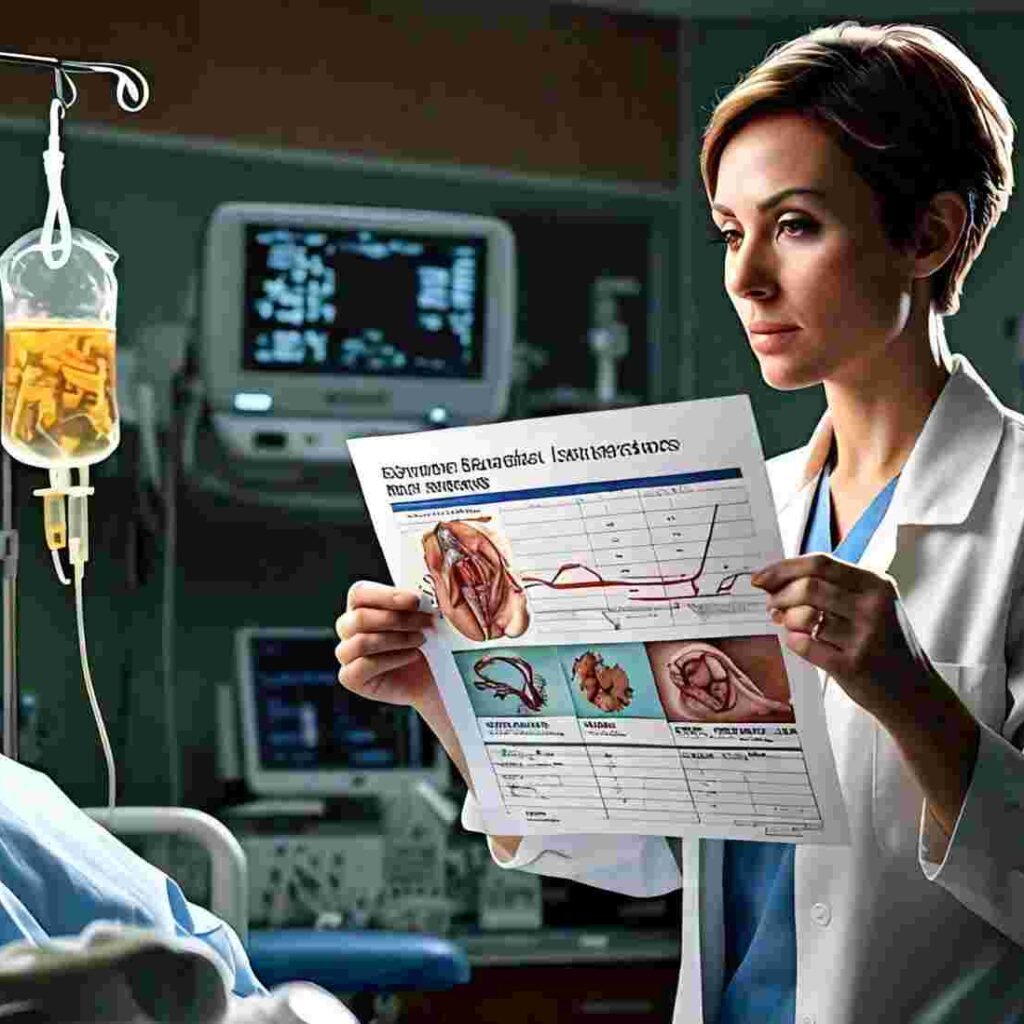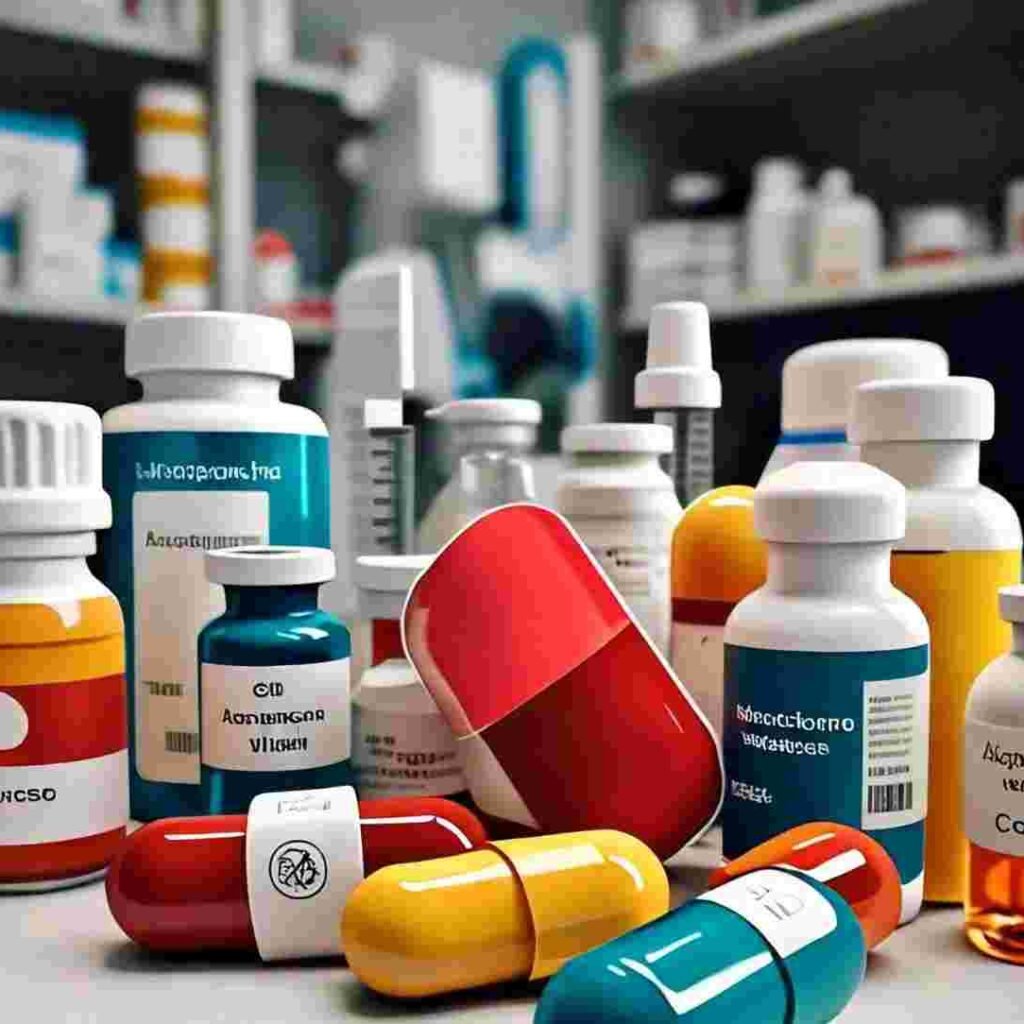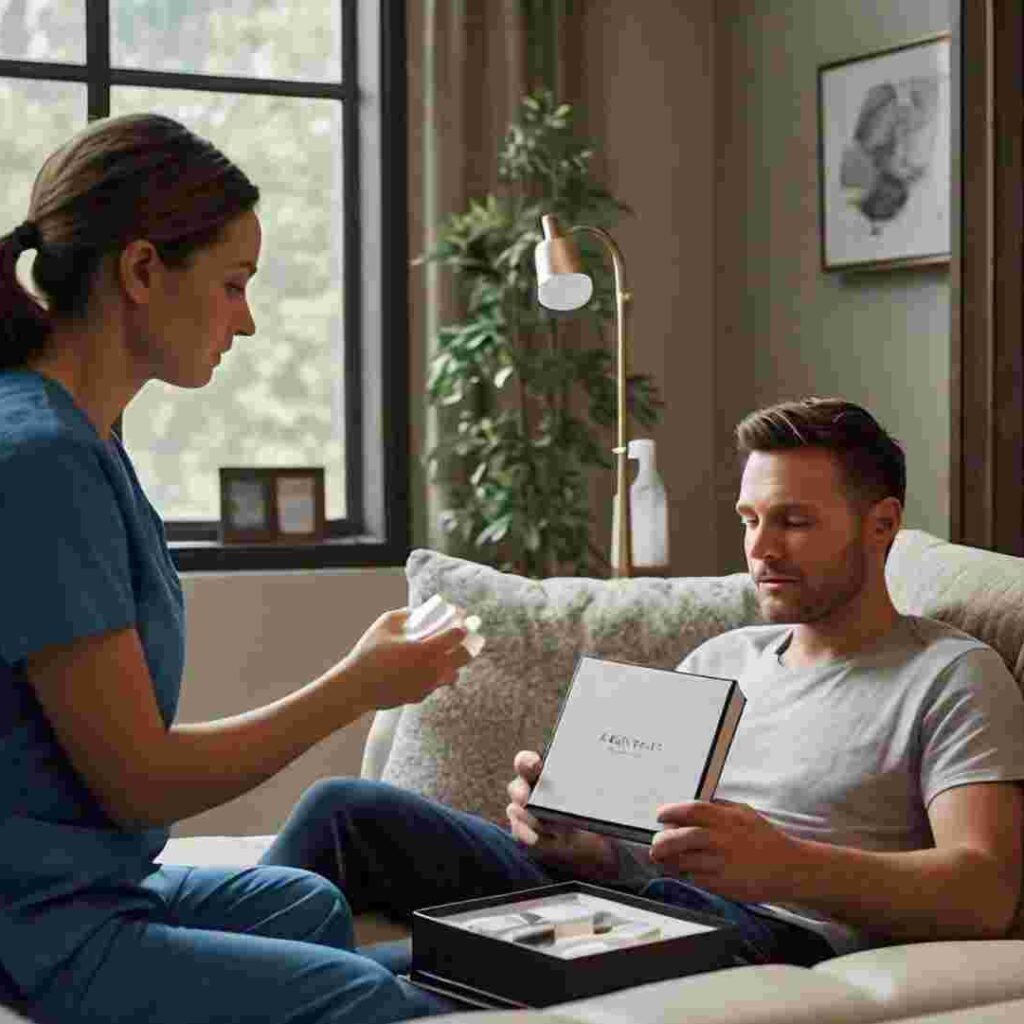Anal infections and fistulas are uncomfortable and painful conditions affecting the anal region. Understanding these conditions, their symptoms, causes, and treatment options is crucial for effective management and prevention of complications.
Importance of Early Diagnosis and Treatment
- Prevents complications, such as abscesses or sepsis
- Reduces risk of recurrence
- Minimizes discomfort and pain
- Ensures timely and effective treatment
Common Symptoms and Causes
- Symptoms:
- Pain or discomfort in the anal region
- Itching or irritation
- Swelling or redness
- Pus or discharge
- Fever
- Causes:
- Bacterial infections (e.g., E. coli, Streptococcus)
- Viral infections (e.g., herpes simplex)
- Fungal infections (e.g., Candida)
- Trauma or injury
- Poor hygiene or bowel habits
Recommended Readings:
- Best Antibiotics For Acne And Pimples
- Over The Counter Antibiotics For Tooth Infection
- Best Antibiotic For Breast Infection | Breast Infection Treatment
- Antibiotics For Stomach Infection | Antibiotics For Gastroenteritis
- Best Antibiotics For Vaginal Infection | Vaginal Itching
- Antibiotics For UTI | Antibiotics For UTI In Men+Women
- Best Antibiotics For Strep Throat | Strep Throat Antibiotics
- Over The Counter Antibiotics For Sinus Infection
What Is The Best Antibiotic For Perianal Abscess?

Table Of Contents
Understanding Bacterial Infections In The Anus
What Happens If You Get Bacteria In Your Anus?
When bacteria enter the anus, they can cause infections, leading to inflammation, pain, and discomfort. If left untreated, these infections can spread and cause more severe complications.
Mechanism Of Infection
- Entry of Bacteria: Bacteria enter the anus through various means, such as:
- Poor hygiene
- Anal sex
- Trauma or injury
- Infected feces
- Colonization and Multiplication: Bacteria colonize and multiply in the anal region, leading to infection.
- Inflammation and Symptoms: The infection causes inflammation, resulting in symptoms like pain, discharge, and swelling.
Types Of Bacterial Infections
- Abscesses: Pockets of pus that form in the anal gland, often requiring drainage.
- Proctitis: Inflammation of the rectum, causing pain, discharge, and bleeding.
- Cellulitis: Bacterial infection of the skin and tissues around the anus.
- Fistulas: Abnormal connections between the anal canal and skin, often resulting from untreated infections.
Common Symptoms Of Anus Infections
- Pain: Tenderness or discomfort in the anal region
- Discharge: Pus or mucus from the anus
- Swelling: Redness and swelling around the anus
- Itching: Persistent itching or irritation
- Fever: Elevated body temperature
- Bleeding: Rectal bleeding or blood in stool
When To Seek Medical Attention
- Severe pain or swelling
- Pus or discharge
- Fever above 101.5°F (38.6°C)
- Bleeding or blood in stool
- Difficulty controlling bowel movements
- Symptoms persisting or worsening over time
Causes Of Bacterial Infections And Fistulas
Understanding the causes of bacterial infections and fistulas is crucial for effective prevention and treatment. If you have any concerns or symptoms, consult a healthcare professional for proper evaluation and care.

Common Causes Of Anus Infections
- Poor Hygiene: Inadequate cleaning and wiping after bowel movements
- Trauma: Injury or strain to the anal region
- Sexually Transmitted Infections (STIs): Bacterial infections like gonorrhea, chlamydia, and syphilis
- Inflammatory Bowel Disease (IBD): Conditions like Crohn’s disease and ulcerative colitis
- Other Medical Conditions: Diabetes, immunodeficiency disorders, and skin conditions like psoriasis
What Disease Attacks The Anus?
- Proctitis: Inflammation of the rectum, often caused by STIs or IBD
- STDs: Sexually transmitted diseases like gonorrhea, chlamydia, and syphilis
- Crohn’s Disease: A type of IBD that can cause anal fissures, fistulas, and abscesses
Anal Fistula Causes
- Chronic Infections: Untreated or recurring anal infections
- Blocked Anal Glands: Clogged anal glands leading to infection and fistula formation
- Surgery or Trauma: Injury or surgical complications in the anal region
- Inflammatory Conditions: IBD, tuberculosis, and other chronic inflammatory diseases
Additional Factors
- Weakened immune system
- Poor bowel habits
- Tight clothing or friction
- Genetics and family history
Diagnosis Of Anus Infections And Fistulas
Early diagnosis and treatment can help prevent complications and improve outcomes. If you’re concerned about your anal health, consult a healthcare professional for proper evaluation and guidance.

Physical Examination
- Visual inspection of the anal region
- Digital rectal examination (DRE) to check for tenderness, masses, or discharge
- Proctoscopy or anoscopy to visualize the anal canal and rectum
Diagnostic Tests
- MRI (Magnetic Resonance Imaging): To evaluate fistula extent and complexity
- Ultrasound: To assess anal gland inflammation or abscesses
- Colonoscopy: To rule out other conditions like inflammatory bowel disease or cancer
- CT Scan: To evaluate the extent of infection or abscesses
- Blood Tests: To check for signs of infection or inflammation
How Do I Know If Something Is Wrong with My Anus?
- Signs to Watch For:
- Pain or tenderness in the anal region
- Bleeding or discharge from the anus
- Persistent swelling or redness
- Itching or irritation
- Fever or chills
- Difficulty controlling bowel movements
When To Seek Medical Attention
- If you experience any of the above signs or symptoms
- If you have a history of anal infections or fistulas
- If you have a weakened immune system or underlying medical conditions
Medical Treatments For Anus Infections
Remember, it’s essential to consult a healthcare professional for personalized advice and treatment. They will determine the best course of treatment based on your specific condition and medical history.

Antibiotics For Anus Infections
- Metronidazole: Effective against anaerobic bacteria, commonly used for anal infections
- Ciprofloxacin: Broad-spectrum antibiotic for bacterial infections
- Azithromycin: May be prescribed for certain types of anal infections, such as chlamydia
Pain Management
- NSAIDs (Non-Steroidal Anti-Inflammatory Drugs): Ibuprofen, Naproxen for pain and inflammation
- Paracetamol (Acetaminophen): For pain relief, it can be used alongside NSAIDs
Topical Treatments
- Hydrocortisone Creams: For reducing inflammation and itching
- Antibiotic Ointments: Mupirocin, Fusidic acid for topical application
Antifungal Treatments
- Clotrimazole: For fungal infections like candidiasis
- Miconazole: Another antifungal option for anal infections
Combination Therapy
- Addressing both bacterial and fungal infections simultaneously
- Using antibiotics and antifungals in combination, as prescribed by a healthcare professional
Important Notes
- Always consult a healthcare professional for proper diagnosis and treatment
- Complete the full course of prescribed medication
- Follow instructions for application or ingestion carefully
Home Care And Self-Management
Remember
- Consult a healthcare professional if symptoms persist or worsen
- Practice good hygiene and moisturize regularly
- Avoid irritants and tight clothing
- Use over-the-counter pain relief and home remedies as needed

Taking Care Of Your Anus
- Hygiene Tips:
- Proper cleaning with mild soap and water
- Avoid harsh or scented soaps
- Pat dry, don’t rub
- Moisturizing and Avoiding Irritants:
- Use gentle, fragrance-free products
- Avoid tight clothing, friction, and stress
- Home Treatments:
- Warm Sitz Baths: Soak in warm water for 10-15 minutes, 2-3 times a day
- Over-the-Counter Pain Relief: Acetaminophen, ibuprofen, or topical anesthetics
- Pain Relief Options:
- Topical Anesthetics: Lidocaine, benzocaine, or hydrocortisone cream
- Home Remedies: Witch hazel, aloe vera, or tea tree oil
- Swollen Anus Relief:
- Anti-Inflammatory Medications: Ibuprofen, acetaminophen, or aspirin
- Corticosteroids: Hydrocortisone cream or suppositories
Treatment Options For Anal Fistulas
Surgical Procedures
- Fistulotomy: Cutting open the fistula to allow healing
- Seton Placement: Placing a thread or rubber band to help drain the fistula
- Advancement Flap Procedure: Moving healthy tissue over the fistula to close it
Non-Surgical Treatments
- Fibrin Glue: Injecting a special glue to seal the fistula
- Stem Cell Therapy: Using stem cells to promote healing
- Antibiotics and Pain Management: Managing symptoms while the fistula heals
New Treatment For Fistula
- Ligation of the intersphincteric Fistula Tract (LIFT): A minimally invasive procedure
- Video-Assisted Anal Fistula Treatment (VAAFT): Using a camera to guide treatment
Healing a Fistula Without Surgery
- Conservative Management: Managing symptoms with antibiotics, pain management, and wound care
- Fistula Plug: Inserting a plug to close the fistula
Anal Fistula Complications
- Incontinence: Loss of bowel control
- Recurrence: Fistula returning after treatment
- Infection: Bacterial or fungal infections
- Abscesses: Infected pockets of pus
- Narrowing of the Anal Canal: Scarring causing anal stenosis
Post-Treatment Care And Recovery
Remember
- Use soothing creams and moisturizers as needed
- Follow your healthcare provider’s instructions
- Attend follow-up appointments
- Make lifestyle adjustments to promote healing

Helping Your Anus Heal
- Proper Wound Care:
- Keep the area clean and dry
- Use mild soap and water
- Pat dry, don’t rub
- Follow-up with a Healthcare Provider:
- Schedule regular check-ups
- Monitor healing progress
- Lifestyle Adjustments:
- Diet: Eat high-fiber foods, avoid spicy or fatty foods
- Exercise: Avoid heavy lifting, straining, or bending
- Avoiding Strain: Take regular breaks, avoid sitting for long periods
Soothing Creams And Moisturizers
- Soothing Creams:
- Hydrocortisone cream
- Witch hazel
- Aloe vera
- Moisturizers and Barrier Creams:
- Apply regularly to keep the area moist
- Use fragrance-free, gentle products
Prevention Of Anus Infections And Fistulas
Protecting Your Anus
- Avoid Damaging Practices:
- Excessive scrubbing or rubbing
- Using harsh chemicals or soaps
- Avoid tight clothing and friction
- Gentle Cleaning:
- Use mild, fragrance-free soaps
- Avoid scented wipes or products
- Pat dry, don’t rub
- Regular Health Check-Ups:
- Early detection of potential issues
- Consult a healthcare professional if you notice any changes or symptoms
- Maintaining a Healthy Lifestyle:
- Diet: Eat high-fiber foods, fruits, and vegetables
- Hydration: Drink plenty of water
- Exercise: Regular physical activity, avoid heavy lifting or straining
Best Practices For Anus Health
- Be Gentle: Avoid harsh products or rough cleaning
- Stay Clean: Practice good hygiene, but avoid over-cleaning
- Get Regular Check-Ups: Early detection and prevention
- Maintain a Healthy Lifestyle: Diet, hydration, and exercise
Frequently Asked Questions (FAQs) – Infection In Anus
What are the symptoms of an anal fistula?
Symptoms include pain, swelling, redness, and discharge or pus around the anus, as well as fever, chills, and irritation.
Can I treat an anal fistula at home?
While some home remedies can help manage symptoms, anal fistulas typically require medical attention and treatment from a healthcare professional.
What is the difference between an anal fissure and an anal fistula?
An anal fissure is a small tear in the lining of the anus, while an anal fistula is an abnormal connection between the anus and the skin.
Can I use antibiotic ointment for hemorrhoids?
While antibiotic ointment may help with infection, it’s essential to consult a healthcare professional for proper diagnosis and treatment of hemorrhoids.
Can I use antibiotic ointment for hemorrhoids?
While antibiotic ointment may help with infection, it’s essential to consult a healthcare professional for proper diagnosis and treatment of hemorrhoids.
How long does it take to recover from anal fistula surgery?
Recovery time varies depending on the type of surgery and individual factors but typically ranges from a few weeks to a few months.
Can anal fistulas be caused by sexual activity?
Yes, anal fistulas can be caused by sexually transmitted infections (STIs) or traumatic injuries during anal sex.
How can I prevent anal fistulas during pregnancy?
Practicing good hygiene, avoiding constipation, and managing hemorrhoids can reduce the risk of developing an anal fistula during pregnancy.
Can anal fistulas affect bowel movements?
Yes, anal fistulas can cause changes in bowel movements, including constipation, diarrhea, or pain during defecation.
How long does it take for an anal fistula to heal?
Healing time varies depending on the type of treatment and individual factors but can range from a few weeks to several months.
Can anal fistulas cause cancer?
No, anal fistulas are not directly linked to cancer, but underlying conditions like Crohn’s disease or ulcerative colitis may increase the risk of colorectal cancer.
How can I manage anal fistula symptoms during travel?
Pack essential medications, avoid spicy or fatty foods, and stay hydrated to manage symptoms while traveling.
Can I use creams or suppositories for anal fistula treatment?
Topical creams or suppositories may be recommended by a healthcare professional to help manage symptoms, but surgical treatment is often necessary to fully resolve the issue.
Encouraging Consultation with Healthcare Professionals
Don’t hesitate to consult a healthcare professional if you’re experiencing symptoms. They can:
- Provide personalized guidance
- Recommend effective treatment options
- Offer preventative measures
- Address concerns and questions
………………………….
Disclaimer:
Information provided on Doseway is for educational purposes only. Your health and wellness are unique to you, and the products and services we review may not be suitable for your circumstances. We do not offer personal medical advice, diagnosis, or treatment plans. For specific advice, please consult with a healthcare professional. Doseway adheres to strict editorial integrity standards. To the best of our knowledge, all content is accurate as of the date posted, though offers and information may change. The opinions expressed are the author’s own and have not been influenced, approved, or endorsed by our partners.
Commissions we earn from partner links on this page do not influence our content. Our editorial content is based on thorough research and insights from qualified medical professionals to ensure the highest standards of accuracy and reliability.
………………………….

 Cart is empty
Cart is empty
Add a Comment